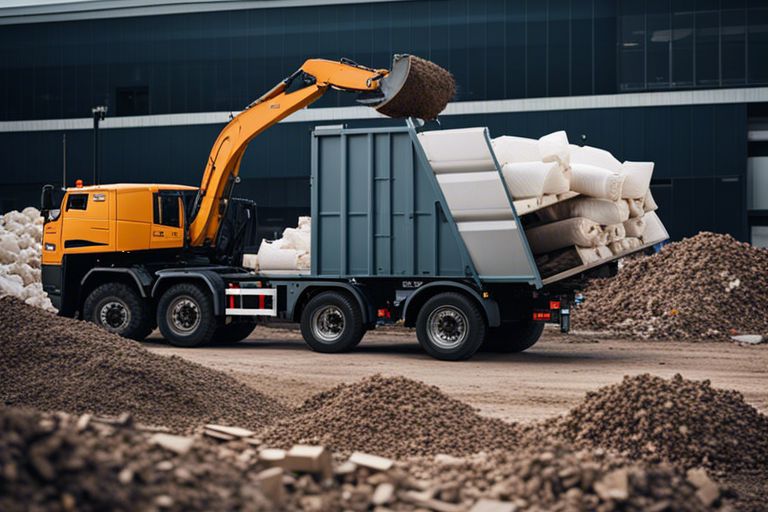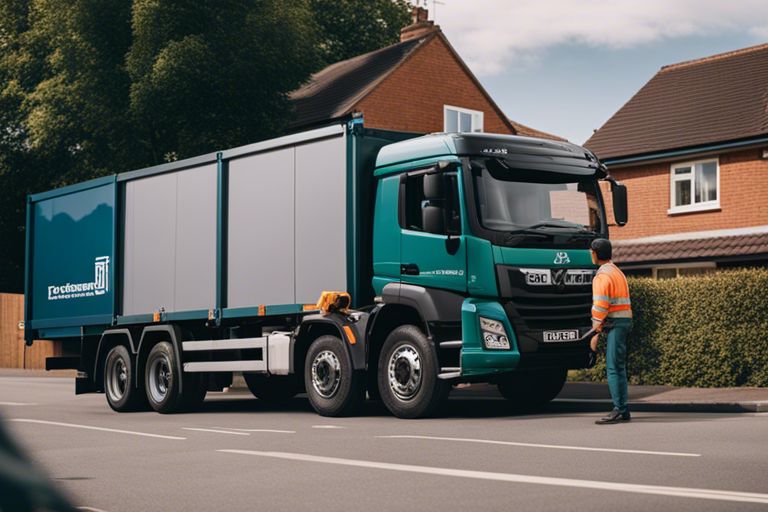It is imperative for businesses to carefully plan and execute office relocations, as they can be complex and challenging undertakings. From ensuring a seamless transition for employees to effectively managing waste during the relocation process, there are numerous considerations that demand attention. Failure to properly plan and manage waste during an office relocation can result in significant financial and environmental consequences. In this blog post, we will provide valuable tips and expert advice on how to navigate the intricacies of office relocation and waste management. We will explore the importance of thorough planning, effective communication, and proper waste disposal techniques, as well as the potential pitfalls to avoid and the benefits of responsible waste management. By following these tips, businesses can ensure a smooth and successful office relocation while minimising their environmental impact.
Key Takeaways:
- Proper Planning: A successful office relocation and waste management requires meticulous planning and organisation to ensure a smooth transition.
- Effective Communication: Clear communication is key to coordinating with all stakeholders, including employees, movers, and waste management providers.
- Sustainable Practices: Implementing sustainable waste management practices can reduce the environmental impact of the relocation and demonstrate corporate responsibility.
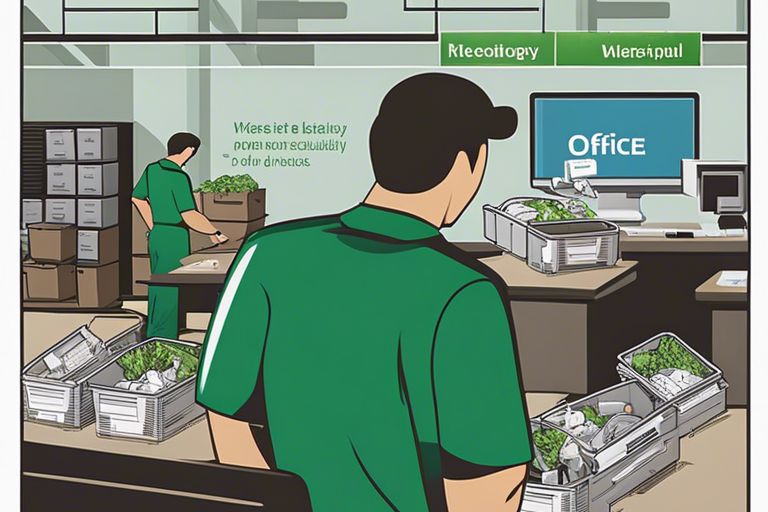
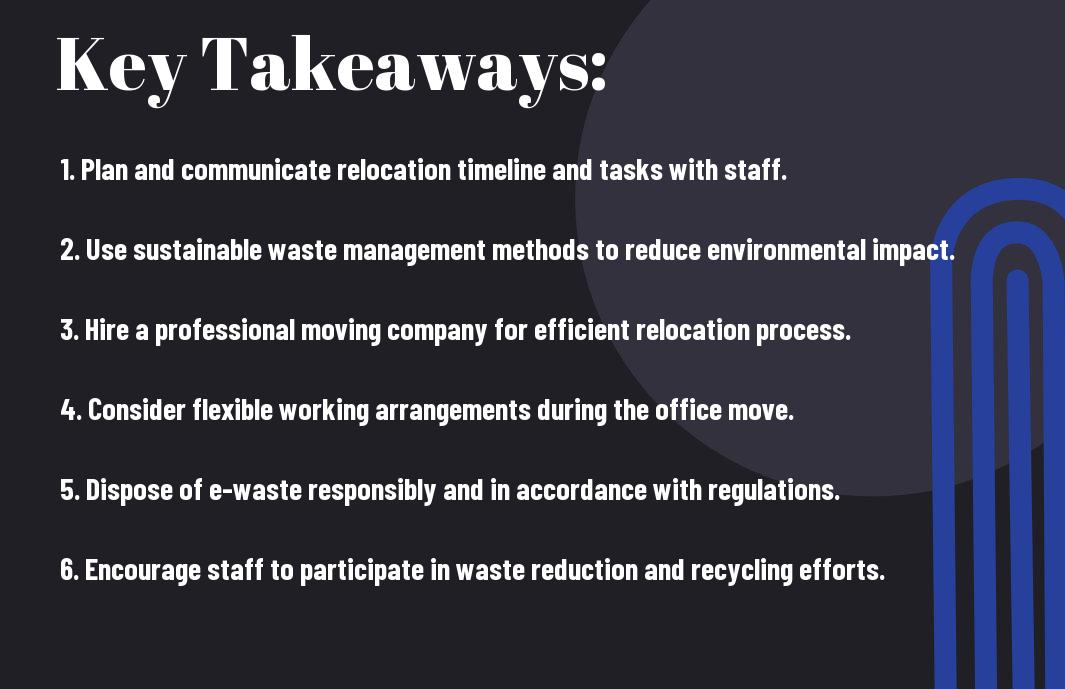
Planning Your Office Move
Before diving into the logistics of physically moving your office, it is crucial to thoroughly plan the entire process. Tips for Minimizing Waste during your Office Move can be found here to help you in your planning and execution of a successful office relocation and waste management strategy.
Setting a Realistic Timeline
Setting a realistic timeline for your office move is essential in ensuring a smooth transition. It is important to determine the ideal time to start the relocation process and the projected completion date. Having a detailed timeline will help you allocate sufficient resources and avoid last-minute rush, which can lead to mistakes and mishandling of critical aspects of the move.
Furthermore, consider potential delays and unforeseen circumstances when creating your timeline. By anticipating potential obstacles, you can proactively mitigate risks and ensure the move stays on track.
Creating an Office Relocation Checklist
Creating a comprehensive office relocation checklist is paramount in ensuring that no detail is overlooked during the move. This checklist should include tasks such as notifying stakeholders, coordinating with service providers, and arranging for the transfer of utilities. Additionally, it is essential to delegate specific responsibilities to individual team members and regularly review progress to maintain accountability.
By following the checklist diligently, you can ensure that each aspect of the office relocation is carefully planned and executed, minimising the risk of oversight and disruption to the business operations.
Involving Your Employees
Engaging your employees in the office move process not only fosters a sense of ownership and teamwork but also ensures a smooth transition. Involving employees in the planning and decision-making process can provide valuable insight and identify potential challenges that may have been overlooked. Additionally, it is crucial to communicate openly with your team, keeping them informed about the move and addressing any concerns they may have.
Empowering employees to actively participate in the office relocation can boost morale and create a positive working environment during this period of change, ultimately contributing to the success of the move.
Effective Waste Management Strategies
Waste management is a crucial aspect of office relocation that is often overlooked. Implementing effective waste management strategies can not only reduce the environmental impact of the move but also save time and money. In this chapter, we will explore key strategies for managing waste during an office relocation, from conducting a waste audit to partnering with eco-friendly waste removal services.
Conducting a Waste Audit
Before embarking on an office relocation, it is important to conduct a waste audit to assess the types and quantities of waste generated by your office. This involves analysing the current waste management practices, identifying areas for improvement, and setting waste reduction targets. By conducting a waste audit, you can identify potential areas for cost savings and environmental impact reductions, and develop tailored waste management strategies for your office move.
Reducing, Reusing, and Recycling in the Office Move
One of the most effective waste management strategies during an office relocation is to focus on reducing, reusing, and recycling materials wherever possible. This can include implementing paperless processes, donating or selling unwanted furniture and equipment, and setting up recycling stations throughout the office. By minimising the amount of waste produced and diverting materials from landfill through recycling and reuse, you can significantly reduce the environmental impact of the move.
By incorporating sustainable practices into the office relocation process, such as using recycled and recyclable materials for packaging and transportation, businesses can demonstrate their commitment to environmental responsibility and set a positive example for employees and stakeholders.
Partnering with Eco-Friendly Waste Removal Services
Partnering with eco-friendly waste removal services can provide several benefits during an office relocation. These services can help businesses to responsibly dispose of hazardous materials, securely shred sensitive documents, and properly recycle electronic waste. By outsourcing waste removal to reputable, environmentally conscious providers, businesses can ensure that waste is managed in compliance with regulations and best practices.
Partnering with eco-friendly waste removal services can also reduce the administrative burden of waste management, allowing businesses to focus on the successful execution of their office relocation while ensuring minimal environmental impact.
The Relocation Process
Choosing the Right Moving Company
When it comes to office relocation, choosing the right moving company is crucial. Look for a company with a solid track record and experience in handling commercial moves. Ensure that they are fully insured and have the necessary equipment and expertise to handle your specific needs. You should also consider getting multiple quotes and conducting thorough research to make an informed decision.
It is essential to communicate your requirements clearly and discuss any specific challenges or sensitive items that need to be moved. By choosing the right moving company, you can minimise the risk of damage or loss of important office equipment and documents during the relocation process.
Packing and Inventory Management
Effective packing and inventory management are vital aspects of a successful office relocation. Organise and label all items systematically to ensure a smooth transition process. Consider creating an inventory list of all items to be moved and take necessary precautions to protect fragile or valuable items.
Additionally, assign a dedicated team to oversee the packing and inventory management to maintain accountability and ensure that nothing is overlooked. Adequate planning and preparation in this area can significantly reduce the risk of misplaced or damaged items during the relocation.
When it comes to packing and inventory management, attention to detail is critical. Proper planning and execution in this aspect can save time and prevent potential losses or disruptions during the relocation.
Minimizing Downtime during the Transition
Minimising downtime during the transition is a top priority for any office relocation. Develop a detailed timeline and action plan to ensure that all operations are minimally disrupted. Consider appointing a relocation team to oversee the transition process and keep employees informed about any changes or adjustments.
Coordinate with the moving company and other service providers to synchronise the relocation process with minimal impact on day-to-day operations. Effective communication and meticulous planning are essential to minimise downtime and ensure a seamless transition to the new office location.
Minimising downtime during the transition not only boosts productivity but also helps maintain a positive image in the eyes of clients and stakeholders.
Settling into the New Space
As you and your team move into the new office space, it’s important to ensure a smooth transition in order to maintain productivity and efficiency. Settling into the new space involves efficient unpacking and space optimization, as well as implementing post-move waste solutions and policies to keep the office environment clean and organised.
Efficient Unpacking and Space Optimization
Efficient unpacking is crucial for getting back to business as soon as possible. Assign specific roles to team members to ensure a systematic and organised unpacking process. Consider the layout of the new office space and optimise it to suit your team’s workflow. Make use of storage solutions, such as shelving units and filing cabinets, to keep the space clutter-free and maximise functionality.
Post-Move Waste Solutions and Policies
Implementing clear waste management policies is essential for maintaining a clean and hygienic office environment. Provide designated recycling bins for paper, plastics, and other recyclable materials, as well as general waste bins. Encourage team members to be mindful of their waste and to make use of the recycling facilities. Additionally, consider establishing a composting system for organic waste to further reduce the environmental impact of your office.
By implementing efficient waste solutions and policies, you can promote a sustainable and environmentally responsible approach to waste management, helping to reduce the office’s carbon footprint and contributing to a positive working environment for your team.
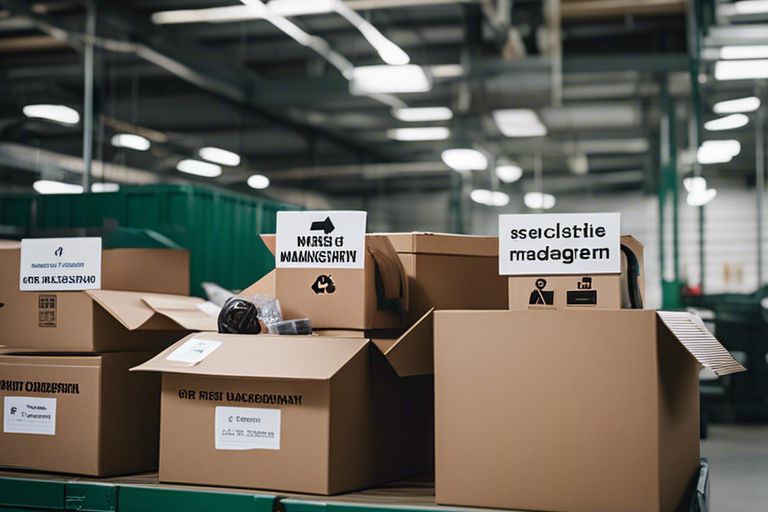
Conclusion: Tips for a Successful Office Relocation and Waste Management
In conclusion, successful office relocation and waste management require careful planning, strategic decision-making, and a commitment to eco-friendly practices. By following the five tips for an eco-friendly office relocation outlined in our comprehensive guide, businesses can reduce their environmental impact, minimise waste, and streamline the relocation process. It’s crucial to engage with professional office relocation services, implement recycling and waste management plans, and educate staff on sustainable practices to ensure a smooth and environmentally conscious transition. By prioritising eco-friendly solutions and waste management strategies, businesses can demonstrate their corporate responsibility and contribute to a greener future. For more detailed information on eco-friendly office relocation, visit 5 Tips for an Eco-Friendly Office Relocation.
FAQ
Q: What are some tips for a successful office relocation?
A: Some tips for a successful office relocation include planning well in advance, hiring a professional removal company, updating your address with relevant parties, and involving employees in the process.
Q: How can we effectively manage waste during an office relocation?
A: To effectively manage waste during an office relocation, consider partnering with a waste management company, label and segregate waste properly, and donate or recycle any unwanted items.
Q: What should be included in a waste management plan for an office relocation?
A: A waste management plan for an office relocation should include an assessment of current waste streams, a strategy for reducing waste, guidelines for disposing of hazardous materials, and a timeline for waste management activities.
Q: How can employees be encouraged to participate in waste management during an office relocation?
A: Employees can be encouraged to participate in waste management during an office relocation by providing clear guidelines, offering incentives for responsible waste disposal, and leading by example through proper waste management behaviours.
Q: What are the potential benefits of effective waste management during an office relocation?
A: The potential benefits of effective waste management during an office relocation include cost savings from reduced waste disposal fees, a positive environmental impact, and a smooth transition to the new office space.


